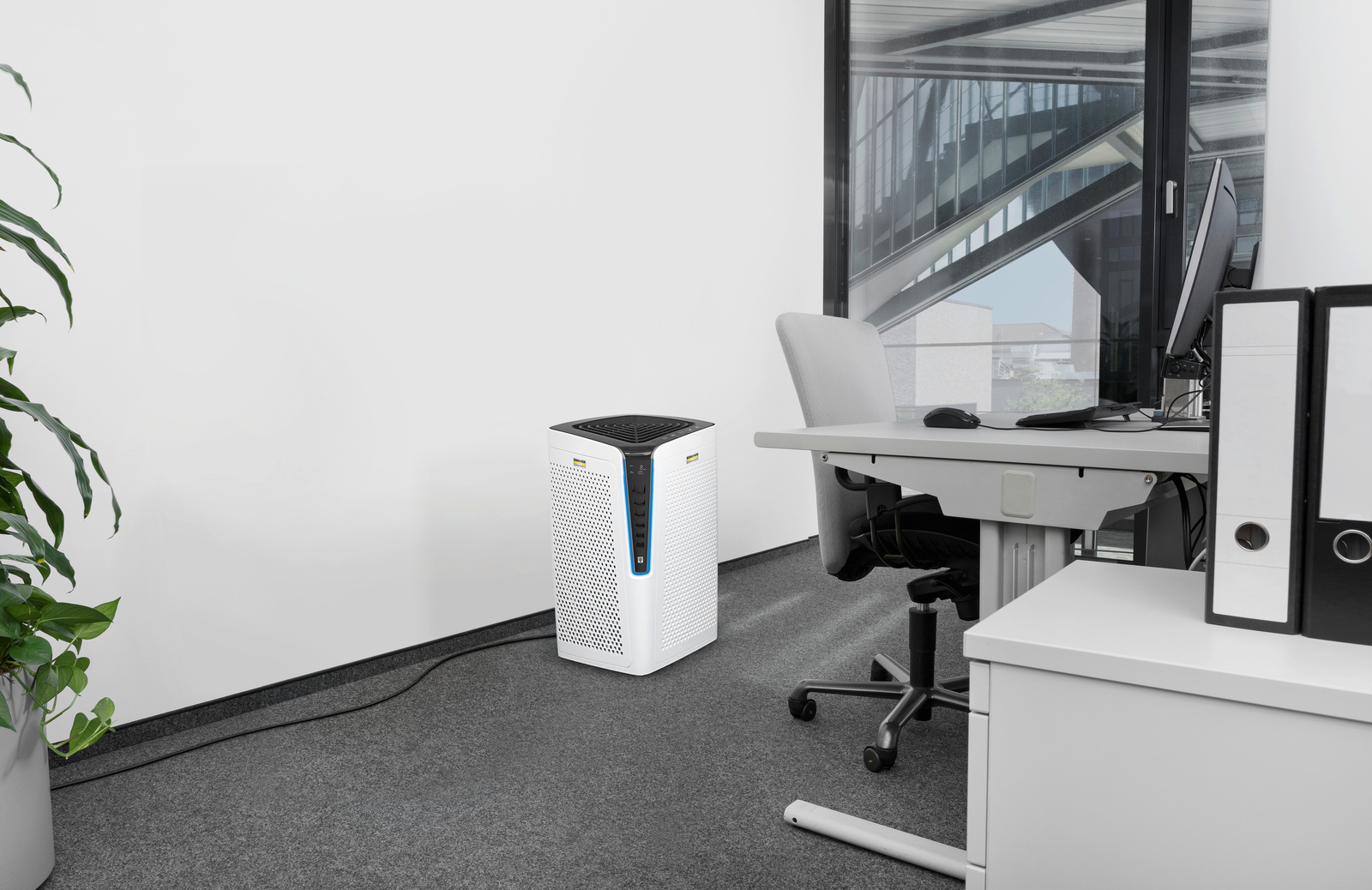Air Purifiers
Commercial grade Air Purifiers that improve the overall quality of the air which can be polluted due to carpets, pollen count & germs.
- Helps headaches, blocked noses and even asthma attacks.
- Option to upgrade to HEPA 13 & HEPA 14 filters to reduce the spread of viruses, including Coronavirus.
- Perfect for schools, offices, restaurants and many other indoor facilities.
How do Air Purifiers work?
Air purifiers remove particles of dust, pollen, odours, chemical gases and germs from the air. High quality, air purifiers like the Kärcher AF 100 will only need a few minutes to provide a room up to 100 m² with fresh, clean air.
With medical grade H 13 & H 14 filters, particles as small as 0.3 μm can be filtered out, removing up to 99.995% of airborne pathogens. This includes those that carry coronavirus.
A precise laser sensor is integrated in the machine which continually monitors the air in the room. Users can see the air quality reading on their machine at all times via a clear colour-coded display; blue if the air is very good, yellow if it is mediocre and red if it is poor. The smart display also shows the current fine particle content in the air and the remaining lifespan of the filter.
The Kärcher AF 100 air purifier comes with a Universal True HEPA H 11 filter as standard with easily interchangeable, medical grade H13 and H 14 filter options available.
How do viruses spread?
Viruses including coronavirus are small; so small that they can become airborne. They can not travel alone, so they need aerosols to attach onto and move through the air.
A person can be infected when aerosols or droplets containing the virus are inhaled or come directly into contact with the eyes, nose, or mouth.
Droplets from an infected person's cough or sneeze can be transported on particles as small as 4.7 μm. These droplets can be up to 50 times smaller than human hair, invisible to the human eye.
It is easier for viruses to spread in poorly ventilated and crowded indoor settings, where people tend to spend longer periods of time. This is because aerosols and droplets expelled from the body can remain suspended in the air for hours. Recent studies show that these aerosols and droplets can travel further than 2 metres, so while social distancing helps, sometimes it's not enough to protect ourselves.

How do we reduce the risk of transmission indoors?
One of the most crucial things to help prevent airborne viruses from spreading is ventilation. Good ventilation is key, and one of the best ways to ventilate rooms is by using an air purifier with HEPA filtration.
HEPA (high-efficiency particulate air) filters can vary in the level of efficiency they offer so it's important to look for one that has adequate filtration for your needs.
H 13 filters can filter out 99.95% particles as small as 0.3 μm whilst H 14 filters are the highest level of filtration, filtering up to 99.995%.
Around 4 to 6 air changes, are recommended per hour, to clean the air in the room thoroughly and eliminate it from infectious particles. This means that you should also make sure any air purifier you invest in, has a sufficient air flow rate for your room. Typically the higher the grade of filter, the lower the air flow rate. In some rooms, you may need 2 units to satisfy recommendations.

